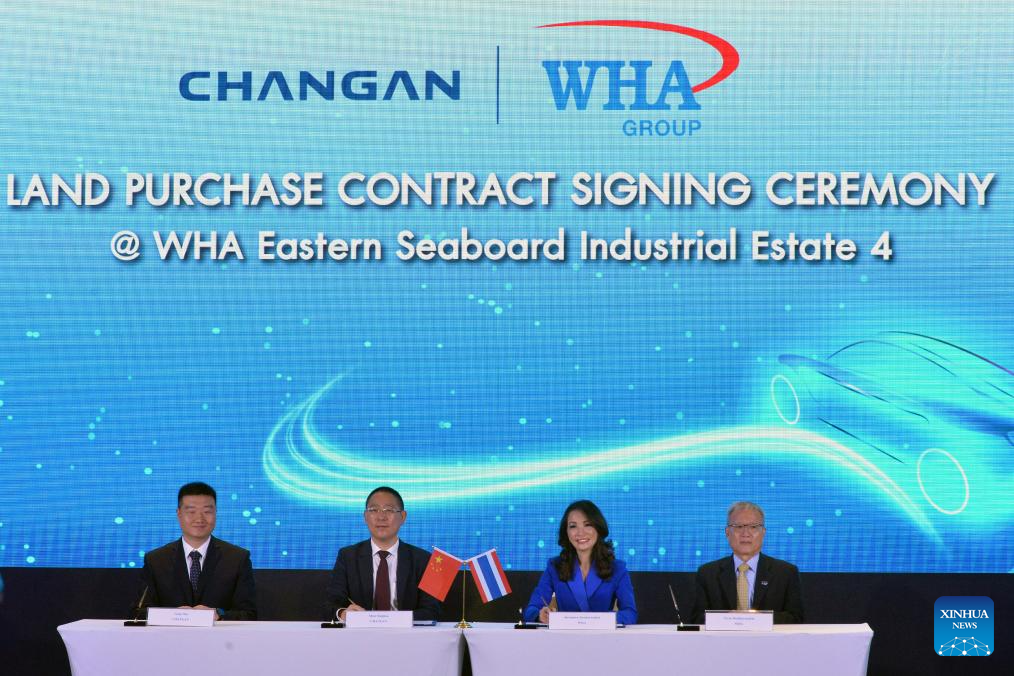
Chinese automaker Changan signs a land purchase agreement with Thailand's industrial estate developer WHA Group to build its new electric vehicle (EV) factory, in Bangkok, Thailand, Oct. 26, 2023. The 40-hectare plant is located in Thailand's eastern Rayong province, part of the country's Eastern Economic Corridor (EEC), a special development zone. (Xinhua/Rachen Sageamsak)
BANGKOK, Oct. 26 (Xinhua) -- Chinese automaker Changan on Thursday signed a land purchase agreement with Thailand's industrial estate developer WHA Group to build its new electric vehicle (EV) factory in the Southeast Asian country.
The 40-hectare plant is located in Thailand's eastern Rayong province, part of the country's Eastern Economic Corridor (EEC), a special development zone.
Scheduled to start operation in 2025 with an initial capacity of 100,000 units per year, the plant will be a production base for electrified vehicles to supply the Thai market and export to neighboring ASEAN and other markets including Australia, New Zealand and Britain.
Changan's investment highlights the role of Thailand in the EV industry on a global stage. This also reflects the company's confidence in the country and will promote the transformation of Thailand's automotive industry, said Jareeporn Jarukornsakul, WHA's chairman and Group CEO.
Strategic location in the EEC-promoted zones for proactive policy to promote the EV industry as well as transportation facilities and infrastructure, are key reasons that support the investment decision worth 8.86 billion baht (about 244 million U.S. dollars) in the first phase, said Shen Xinghua, managing director of Changan Auto Southeast Asia.
He noted that this is the first overseas EV factory, and Changan's entry into Thailand will bring much more jobs for the locals, as well as promote the development of Thailand's EV industry chain and supply chain.
Thailand has long been a major automobile production base in Southeast Asia due to its industrial chain and geographical advantages.
Under the government's investment promotion, which aims to produce EVs for 30 percent of all vehicles in the kingdom by 2030. In addition to Changan, Chinese carmakers such as Great Wall and BYD have built plants in Thailand and launched EVs. According to the Federation of Thai Industries, in the first half of this year, Chinese brands accounted for over 70 percent of Thailand's EV sales. ■



